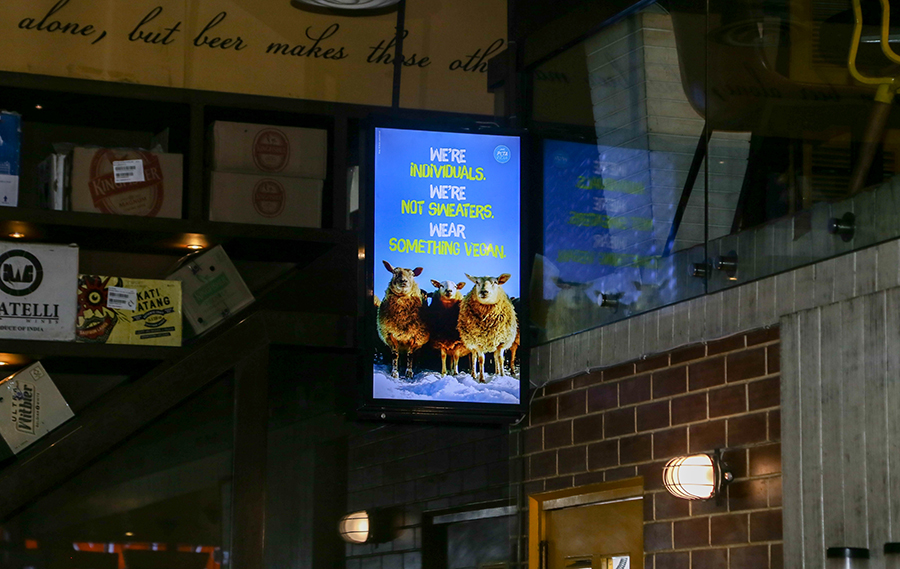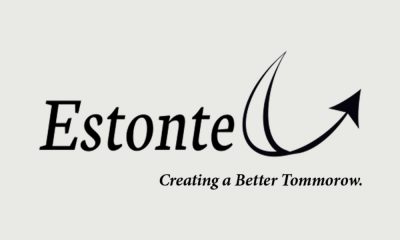Campaigns
PETA India’s new campaign urges shoppers to ditch leather, wool and exotic skins
The animal rights organisation has placed communications on Tagtalks’ digital assets network in bars, restaurants, and cafés in Bengaluru, Delhi, Mumbai and Pune

In honour of World Vegan Month (November), People for the Ethical Treatment of Animals (PETA) India and digital advertising network Tagtalk have placed campaign in bars, restaurants, and cafés in Bengaluru, Delhi, Mumbai, and Pune encouraging shoppers to steer clear of leather, wool, and exotic skins.
“When it comes to feeling pain and fear, loving their families, and valuing their own lives, animals are no different from humans,” said Radhika Suryavanshi, Senior Campaigns Coordinator, PETA India. “This World Vegan Month, PETA India is urging everyone to practise kindness by leaving all animals out of their wardrobes.”
Tagtalk is a content-driven, hyper-local, modern consumer engagement platform which broadcasts live across leading eating establishments and reaches millions of urban millennials.
Gautam Bhirani, MD of Eyetalk Media Ventures, which operates Tagtalk, said, “In a society where people are increasingly shifting towards socially conscious and ethical fashion, we at Tagtalk are proud to further spread PETA India’s noble appeal to people to ditch leather, wool, and exotic skins. We hope the message reaches a wide spectrum of people, bringing about a change that’s here to stay.”
PETA India and its international affiliates have released exposés of more than 100 wool facilities spanning four continents, each one revealing routine cruelty to sheep.
According to the organisation, the squalid, severely crowded conditions in which crocodiles, alligators, snakes, ostriches, and other wild animals are raised and slaughtered for their skin are similar to those that are believed to have given rise to the novel coronavirus, and they pose a threat of future pandemics.
Cows, buffaloes, and other animals used for leather in India are often crammed onto vehicles so tightly that their bones break. The throats of those who survive this ordeal are cut in full view of others at the slaughterhouse, and for many, dismembering and skinning begin while they’re still conscious. Leather production is also detrimental to human health and the environment: run-off from tanneries poisons rivers and streams, harming all life within, and has been linked to cancer, respiratory infections, and other health conditions in humans, as per PETA India.
-

 Campaigns
CampaignsMcDonald’s Germany’s thoughtful DOOH campaign for Ramadan
-

 Tenders
TendersUPMRC invites bids for advertising rights across 15 Kanpur metro stations
-

 Campaigns
CampaignsInteractive AI hologram takes a spiritual avatar
-

 Uncategorized
UncategorizedGodrej Properties transfixes Kharghar with a bionic Butterfly and drone spectacle



















